The Future of Rehab
Preparing the next generation of rehabilitation scholars and specialists
Among those who graduated from the University of Toronto last November was a new crop of rehabilitation sector professionals and scholars ready to provide treatment to a public in need of their assistance. Often called to the profession by a desire to help, they bring the training, research and experience gained from U of T’s rigorous rehab programs into clinics and homes. Meet a few of this year’s graduates.
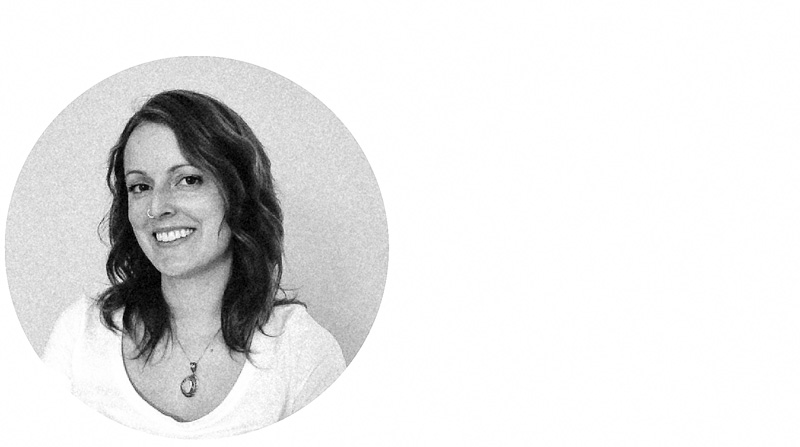
Krista Howarth
Master of Health Science in Speech-Language Pathology, Department of Speech-Language Pathology
Working as a therapist for children with language disorders in Vancouver, Howarth saw first hand the challenges families faced when seeking assistance within the health and education systems. “That was a big reason why I sought to do my Master’s degree; to advocate for families and to improve care,” says Howarth. In addition to spurring her academic and clinical interests, it soon directed her spare time too. She became active with the Ontario Association of Speech-Language Pathologists and Audiologists (OSLA), joining their board as a student member. “I really enjoyed the opportunity to work with OSLA and I hope to stay engaged in similar organizations in the future,” she says. During her studies, Howarth has earned numerous awards for her leadership and academic performance, including the Paula Square Award of Excellence, the Speech-Language and Audiology Canada Student Excellence Award, and the Harmonize for Speech Fund Academic Excellence Award, which is given to the graduating MHSc student with the highest academic average in the program. She’ll soon join the staff of Toronto Western Hospital as part of the acute care medical team. “I’m excited to be part of UHN, which is such a strong network and where there will be a lot of opportunities to get involved.”
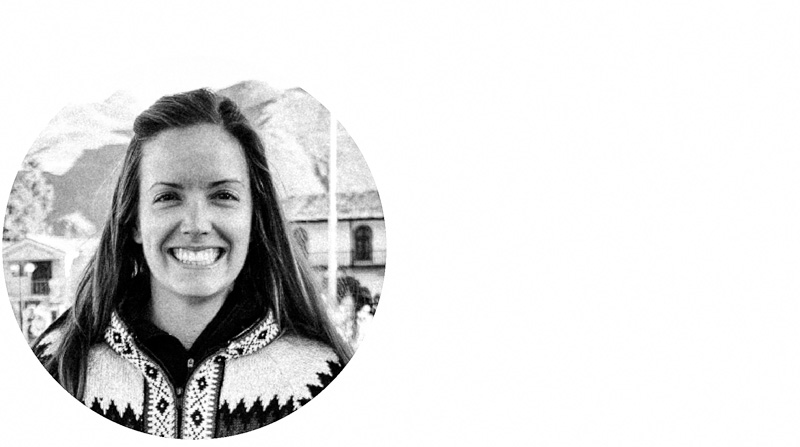
Denine Ellis
Master of Science in Physical Therapy, Department of Physical Therapy
It was a love of exercise that drew Ellis into the field of physical therapy. “I was always very involved in different sports, so I know first hand the value of good physical therapy,” said Ellis, who was a member of the women’s varsity soccer team at the University of New Brunswick, where she competed her undergraduate degree in kinesiology. After working for three years as a clinical kinesiologist, she wanted to take the next step in her career and become a registered physiotherapist. She came to U of T, where in addition to her studies, she founded Exercise is Medicine Canada at U of T, which promotes the value of exercise as a primary prevention tool. For this she won a 2015 Cressy Award, which recognizes students who have made outstanding extra-curricular contributions. Ellis, who has moved to Vancouver, is in private practice. “Exercise continues to be a key part of my practice. I work with my clients to suggest how they can use exercise as treatments for everything from sports injuries to managing chronic disease.”
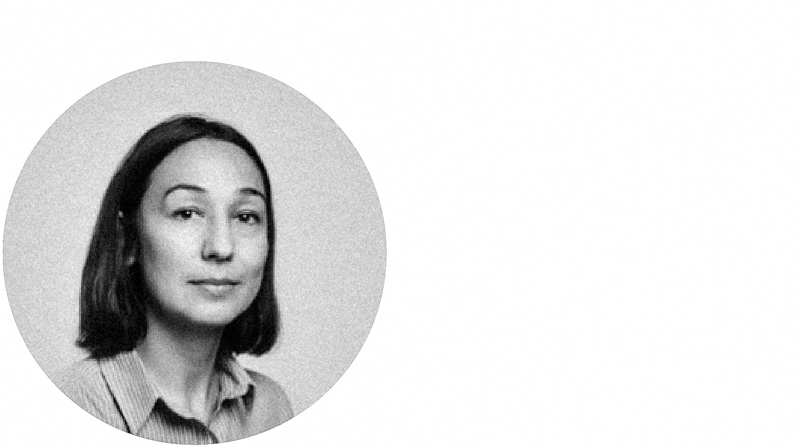
Tatyana Mollayeva
Doctor of Philosophy, Rehabilitation Sciences Institute
As a driven medical resident in Moscow, Mollayeva gained some personal experience with the negative consequences of sleep deprivation. However, after immigrating to Canada and working at a sleep clinic and as a disability case manager within the insurance industry, she saw on a much broader scale the huge impact that a lack of sleep was having on society. “When I was examining insurance claims, I saw that shift workers were being injured at a much greater rate than others,” said Mollayeva who suspected that a lack of regular sleep may be the underlying cause. She decided to pursue doctoral studies in part to explore that question. Working with Professor Angela Colantonio, the Director of the Rehabilitation Sciences Institute and a world-renowned expert in head trauma, Mollayeva look at sleep-wake patterns in persons who sustained a head injury at the workplace. She found that disturbed sleep is a potential risk factor for brain injury, with insomnia a persistent challenge with respect to recovery post injury. Her work has been recognized with the 2015 ACRM Deborah Wilkerson Award from the American Congress of Rehabilitation Medicine and she earned the CIHR Frederick Banting and Charles Best Canada Graduate Scholarships. The field of sleep medicine, says Mollayeva, is rapidly growing as research shows that wide ranging effects rest has on health. She is currently pursuing post-doctoral studies at the Rehabilitation Sciences Institute, expanding her research on the topic of sleep in brain-injured persons.
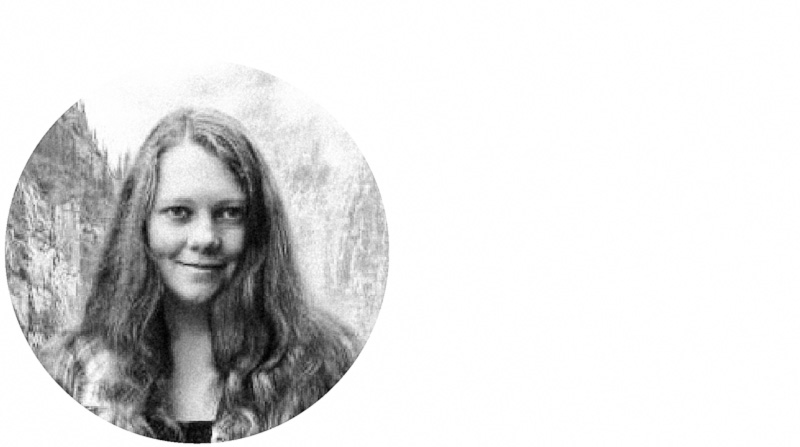
Kristina Boccia
Master of Science in Physical Therapy, Department of Physical Therapy
It’s called Hand-arm Vibration Syndrome — or HAVs — and it’s an entirely avoidable condition. But a lack of awareness about it is causing it to go undiagnosed until it is too late. As part of her degree work, Boccia studied the condition that impacts people who work with vibrating devices, such as construction workers or miners. It can start with minor pain, but can lead to numbness, a loss of grip strength and bone cysts. Importantly, she found, its impact stretches beyond these impairments to impact emotional and psychological health, interpersonal relationships, and quality of life. “Our research has given us a chance to start talking about this more and bringing it to people’s attention,” says Boccia, who presented her findings at the occupational medicine rounds at St. Michael’s Hospital. While Boccia is looking forward to starting her practice after a trip to New Zealand — “It was my graduation present to myself” — she is already starting to think about completing a PhD and being involved in teaching in the future. “I really love researching and sharing what I learn with others. I had the opportunity to TA for a course, which was a wonderful experience too. I expect to have a long association with physical therapy at U of T.”
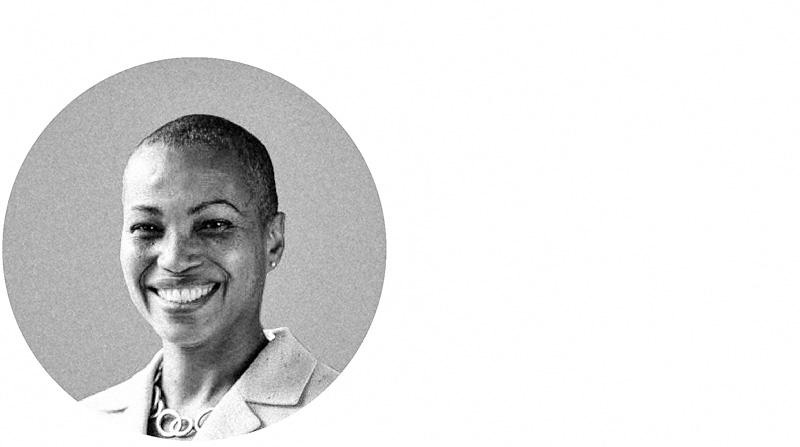
Jacqueline Schleifer Taylor
Doctor of Philosophy, Rehabilitation Sciences Institute
“Frankly, it was a love of learning that led me to complete my PhD,” says Schleifer Taylor, who welcomed the chance to explore issues in the classroom and through research, while continuing to face challenges in the field as a healthcare executive. Currently the Vice President of Patient-Centred Care at London Health Sciences Centre, Schleifer Taylor was part of a program that required students to work in the healthcare sector while completing their studies. The work experience reinforced the learning, and vice verse. It was a learning experience that she can foresee more executives seeking in the future. For her thesis, Schleifer Taylor studied how the health systems in Canada, the UK and Australia managed the transition of care as patients age out of the child health system and joined the adult one. It gave her a way to explore academic hospitals, which fascinates Schleifer Taylor and was one of the strengths of U of T that drew her to study here. “You look at the TAHSN (the Toronto Academic Health Science Network), which is one of North America’s largest networks of academic hospitals, and it’s just awe inspiring,” says Schleifer Taylor. “People are looking to academic health science centres to answer the big questions, because if an academic hospital can’t, who can?”
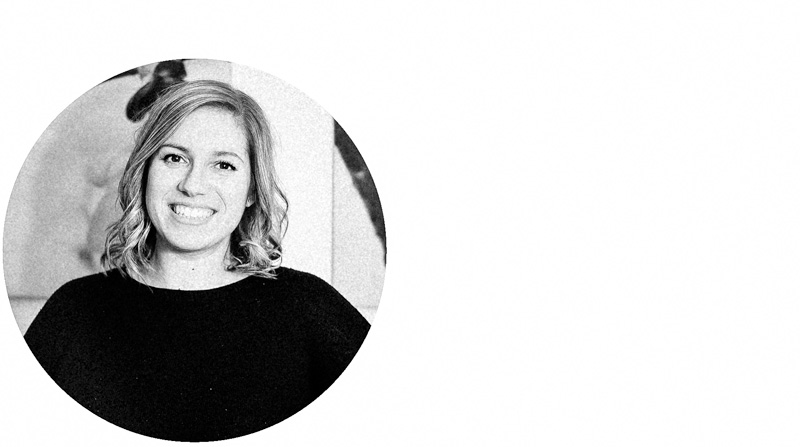
Rebecca Northy
Master of Science in Occupational Therapy, Department of Occupational Science & Occupational Therapy
After completing an internship after her undergraduate degree, one thing was clear to Northy: she didn’t want a career in law. “I didn’t want to be stuck at a desk all day. I wanted to be out helping people,” she says. So after exploring a variety of career options, it was a conversation with an occupational therapist that convinced her to enter the field. “I really enjoyed working with seniors and it seemed like a great career,” says Northy, who enjoyed the rich student experience she found at U of T. Her studies included a year spent researching the effectiveness of Mirror Therapy, which is used to improve arm mobility in stroke patients. “It was a clinical research project that allowed us to meet twice a week with patients. We found that the therapy seemed to be very effective and the work is still going on — two other students are continuing the research.” Northy began working shortly after classes ended with a community-based organization that helps seniors or people with disabilities continue to live at home. “I visit their homes and assess their safety and identify resources that can help them continue to live independently.” Long term, she is looking to move into more of an educational role to better share the insights gained at U of T with a broader community.
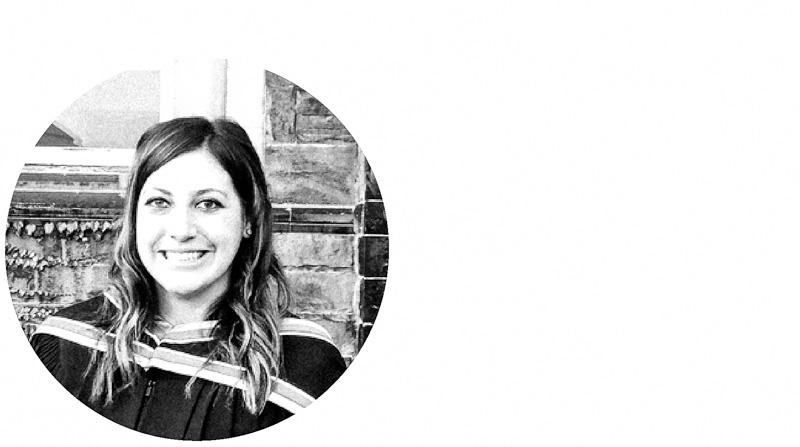
Carly Stier
Master of Science in Occupational Therapy, Department of Occupational Science & Occupational Therapy
A defining experience for Stier was the four placements she completed during her two-year program. It gave her the opportunity to see occupational therapy practiced across the life span; from a paediatrics placement at Holland Bloorview Kids Rehabilitation Hospital to a neurology placement at the Toronto Rehabilitation Institute that included working with elderly stroke patients. She also had the chance to see care delivered across cultures by participating in a placement in Trinidad. “The experience in Trinidad was truly transformative. Not only did I get to see the practice of occupational therapy in a different country, but also in a completely new cultural context. It really made me appreciate the importance of cross-cultural competencies,” says Stier. Inspired to explore the profession by the example of her mother — occupational therapy professor Jill Stier — it gives the younger Stier a chance to explore her interest in health care. The program also ignited an interest in research in the field, thanks to a research project that explored the functional impact that adaptive seating has on the lives of children and their families. “It really showed me the importance of evaluating the outcomes of treatments and to be sure we’re guided by evidence-based decision making,” says Stier, who is contemplating a PhD as part of her long-term career goals. For now, she’s eager to enter the profession and deliver care after competing her certification exam later this month.
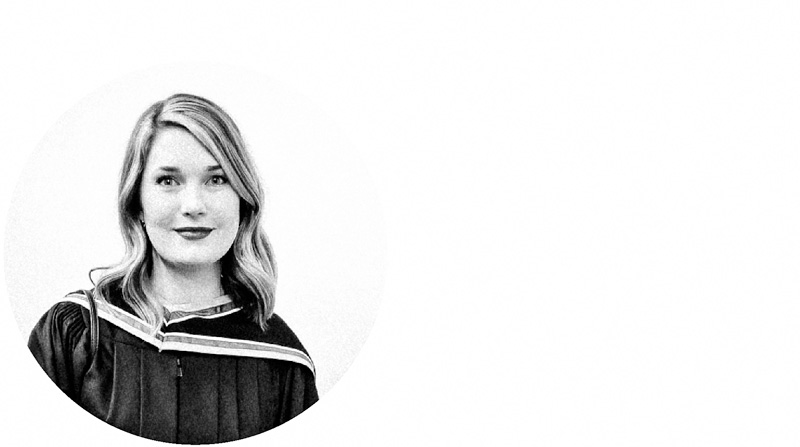
Andrea Verwey
Master of Health Science in Speech-Language Pathology, Department of Speech-Language Pathology
“It’s all come full circle,” says Verwey from her office in the same high school where she had graduated from in Portage la Prairie, Manitoba. She works there as an in-house speech language therapist for a specialized program for teens and adults with intellectual disabilities. “My aunt was a speech language assistant, so I was exposed to the profession at an early age,” adding that it was the opportunity to work with a wide variety of people — from the very young to seniors — that made it most appealing. She left high school aiming to complete a speech-language pathology program. After competing her undergraduate, she joined U of T where she found not only the program she always wanted, but a supportive community in a dynamic city. “Being in Toronto was wonderful, especially having the chance to explore it and experience it with my classmates,” Verwey says. “It was nice to have the support of your fellow students. You can talk to friends and family, but it’s only the other people in your program that really know what you’re going through. Verwey’s success in the program was recognized with the Sandra Henderson Award for Clinical Excellence, which is given to the student with the highest average mark across the four clinical units.